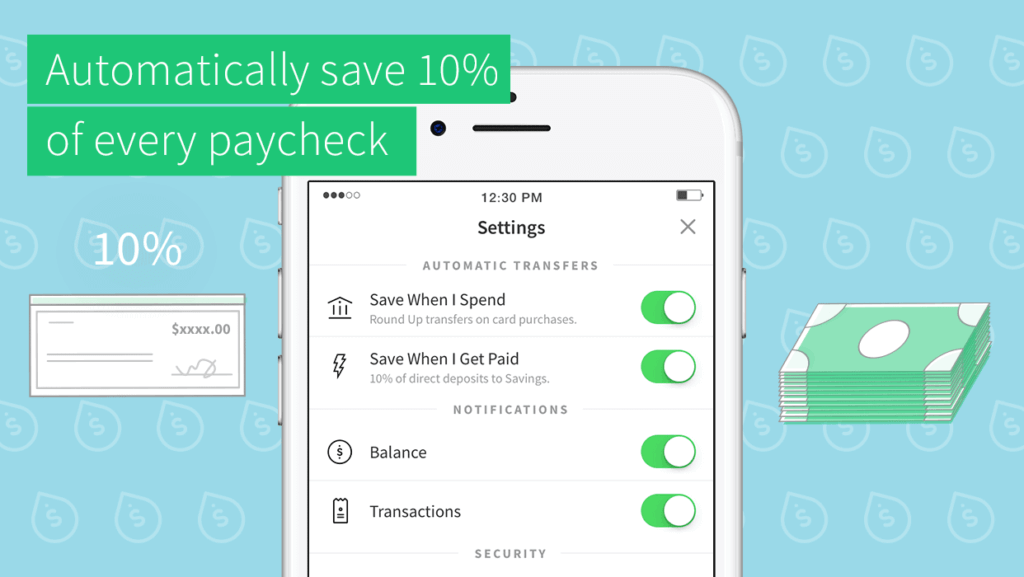A popular way to receive your paycheck today is by direct deposit.
- In this video I show you how to chime bank direct deposit works and give you tips on using the chime app!💪Subscribe to Brandon Young- https://goo.gl/Wd56du.
- The latest a bank is required to make any routine direct deposit (not just SSI) available is when it opens the morning of your payday; I worked in a payroll office for 9 years so I knew that in case anyone.
While Chime provides the digital experience to access your funds, your bank account is backed by one of two partner banks, The Bancorp Bank and Stride Bank, N.A. Your Chime Spending Account is insured up to the standard maximum deposit insurance amount of $250,000 through our partners, The Bancorp Bank or Stride Bank.
With direct deposit, you don’t have to take a physical check to a brick-and-mortar bank. You don’t even have to take a picture of the check to deposit it via your smartphone into your bank account. Instead, you can cut out these extra steps and have your money directly deposited into your bank account on payday with no hidden fees.

Direct deposit is basically an electronic payment from one bank to another. The best part is that most employers offer direct deposit as a payment option and it’s simple to set up.
Read on to become more familiar with how direct deposit works.
When you are set up for direct deposit with your employer, the funds for your pay will simply be transferred from your employer’s bank account to your bank account. To transfer the funds, banks use the Automated Clearing House (ACH) network to coordinate these payments among financial institutions.
You’ll still have access to your paycheck stub so that you can review your timesheet, see the amount of taxes taken out, view your vacation time, and so on.
Direct deposit is not just limited to your paycheck. You can set up direct deposit for your tax refund, social security or disability income, and other types of payments that you may receive.
When you start a new job, your employer may ask you if you want to set up direct deposit, or you can simply ask how to start this easy process.
If direct deposit sounds like something you’d be interested in, here are some key steps you’ll need to follow in order to get everything set up. Remember, most employers and even many government agencies offer direct deposit so this is a totally secure and convenient way to get paid.
1. Get a direct deposit form from your employer
Start by asking your employer for a direct deposit form. This is a crucial step since you can’t continue without this. The direct deposit form is a document that authorizes your employer to send money to your bank account using an ABA routing number and a bank account number.
2. Provide your personal bank account information
To complete the form, you will need to add information like:
- Your bank account name and address
- Bank account number
- Routing number
- Type of account (checking or savings)
- Name(s) of the account holder
You can find most of this information on a voided check, your bank account statement, or via your mobile bank account app.
4. Decide how much money you want to be deposited into your bank account
Next, be sure to determine how much money you want to be deposited into your bank account.
While some people opt to have their entire paycheck deposited into their checking account, a cool feature with direct deposit is that you can split up the payment between your checking and savings accounts.
Chime Bank Direct Deposit Time

For example, you may want your employer to deposit 10% of your income to your savings account and the remaining 90% into your checking account.
Chime’s automatic savings feature, for example, makes it easy for you to do this so you don’t have to think about saving money. This way you can set aside a portion of your income automatically and budget the rest of your paycheck for other expenses.
Another option you may want to consider is splitting up your direct deposit amount between your checking account and your partner’s checking account. If you combine expenses with your spouse or live on one income, this may be a convenient way to disperse your paycheck.
5. Include a voided check or deposit slip with your direct deposit form
You may also be asked to provide a voided check when you turn in your direct deposit form. A voided check is a check that has the word ‘VOID’ written across the front. This indicates that the check can’t be accepted for payment, but can be used to gather important bank account details and information.
Chime Bank Direct Deposit Time In
And, even though you’re already providing this information on the direct deposit form, it’s still a great idea to verify everything with a voided check to ensure that your paycheck gets deposited into the correct account.
6. Submit your direct deposit form to your employer & monitor your bank account
Check to make sure that the information on your direct deposit form is accurate before you turn it in. Your employer or the HR department should let you know how long it will take to process your information and set up your direct deposit.
You may have to wait one or two pay periods, but keep your eye on your bank account around payday so you’ll know when the direct deposit kicks in.
Wondering how you can find your Chime Routing Number? 👀
If you’re still wondering whether you should sign up for direct deposit at your job, here are some key benefits you should consider when you make the switch.
- You’ll save time: Having direct deposit means your money goes directly into your account. This means you don’t have to spend time going to a bank or check cashing service after work to cash your check.
- You’ll save money: Sometimes, if you don’t cash a check at your traditional bank, you’ll get charged a fee. Currency exchanges often charge fees that increase with the amount of your check. And, some big banks may not cash your check if you don’t have an account there, or they may even charge you a fee. Direct deposit makes it easy to avoid these unnecessary charges and get your paycheck delivered directly to your account.
- You can get paid early¹: Another great benefit you should consider is the fact that you can actually get paid earlier. Chime’s Get Paid Early feature allows you to get your paycheck up to 2 days earlier¹ with direct deposit.
Setting up direct deposit is easy, free, and will likely be a more convenient way for you to get paid.
Don’t procrastinate because this can end up costing you more money and time in the long-run. Instead, take action today and improve your financial future.
Already banking through Chime? Learn how to set up direct deposit with Chime.
Whether you’re an employee, independent contractor or somewhere in-between, there’s no denying that getting paid is important. But it can be a drag to go to the bank or use a mobile app to cash or deposit a check. That’s why direct deposit is a great option if you’re looking to access your cash quickly.
Direct deposit is a payment option where your funds are electronically transferred to your checking or savings account. This can help the payee receive payment faster and avoid dealing with physical checks.
In many cases, direct deposit means your payroll checks are automatically deposited into your bank account. You would typically set up this type of direct deposit with your employer. But, you can also use direct deposit for tax refunds and other types of payments. The benefit of direct deposit is that funds are seamlessly transferred from the payer to the payee. Like the name suggests, the funds are directly deposited into a bank account for easy and quick access.

If you want to avoid cumbersome checks and ensure you get paid quickly, signing-up for direct deposit is key. Whether you sign-up for direct deposit through your employer, a vendor or another company, typically the process is the same.
Of course, each company may have different forms you need to fill out to process the request. In all likelihood, you’ll need the following types of information:
- Your bank routing number
- Your account number (this is the account you want the funds to go into)
- Your bank’s address
- A voided check

You can think of your routing number as an electronic address that helps ensure that the funds are going to the right neighborhood. Your specific and unique account number, on the other hand, is like your financial home. Both of these numbers help specify exactly where your money should go when you set up direct deposit.
Lastly, your bank’s address and a voided check may be used for additional verification as part of the direct deposit set-up process.
After you learn how to set up direct deposit, you may then want to know how long direct deposit takes to go into effect.
In some cases, it can take one to two pay cycles for direct deposit to be set up properly. This may mean you’ll still have to use physical checks for a little while longer until everything is set up.
Once direct deposit is ready, exactly when your funds will hit can vary depending on factors like what type of payroll software your employer uses and when payroll is submitted. This is important to understand, especially if you are setting up automatic transfers. For example, if your direct deposit won’t hit until 9am on a business day, but an automatic transfer is taken out earlier than that, this can cause problems. Instead, find out exactly when your funds will be available and then schedule your bill payments and automatic transfers after your payment hits.
It’s also important to note that in some cases your financial institution may put a hold on your funds for a couple of days before releasing the money into your account. For this reason, early direct deposit features can be a complete game-changer.
Early direct deposit allows you to access your funds faster than most traditional banks.
There’s nothing worse than knowing that you should already have your money – but your funds are on hold. You have bills to pay and a life to live. If your funds are on hold and you make a payment and don’t have enough in your account, it can spell trouble and even lead to hefty fees like overdraft fees.
That’s why when you direct deposit with Chime, you get access to features early direct deposit¹, overdraft without fees², and more!
Bottom line
If you’re offered the option to sign-up for direct deposit, it’s always a good idea. It not only minimizes paperwork and c